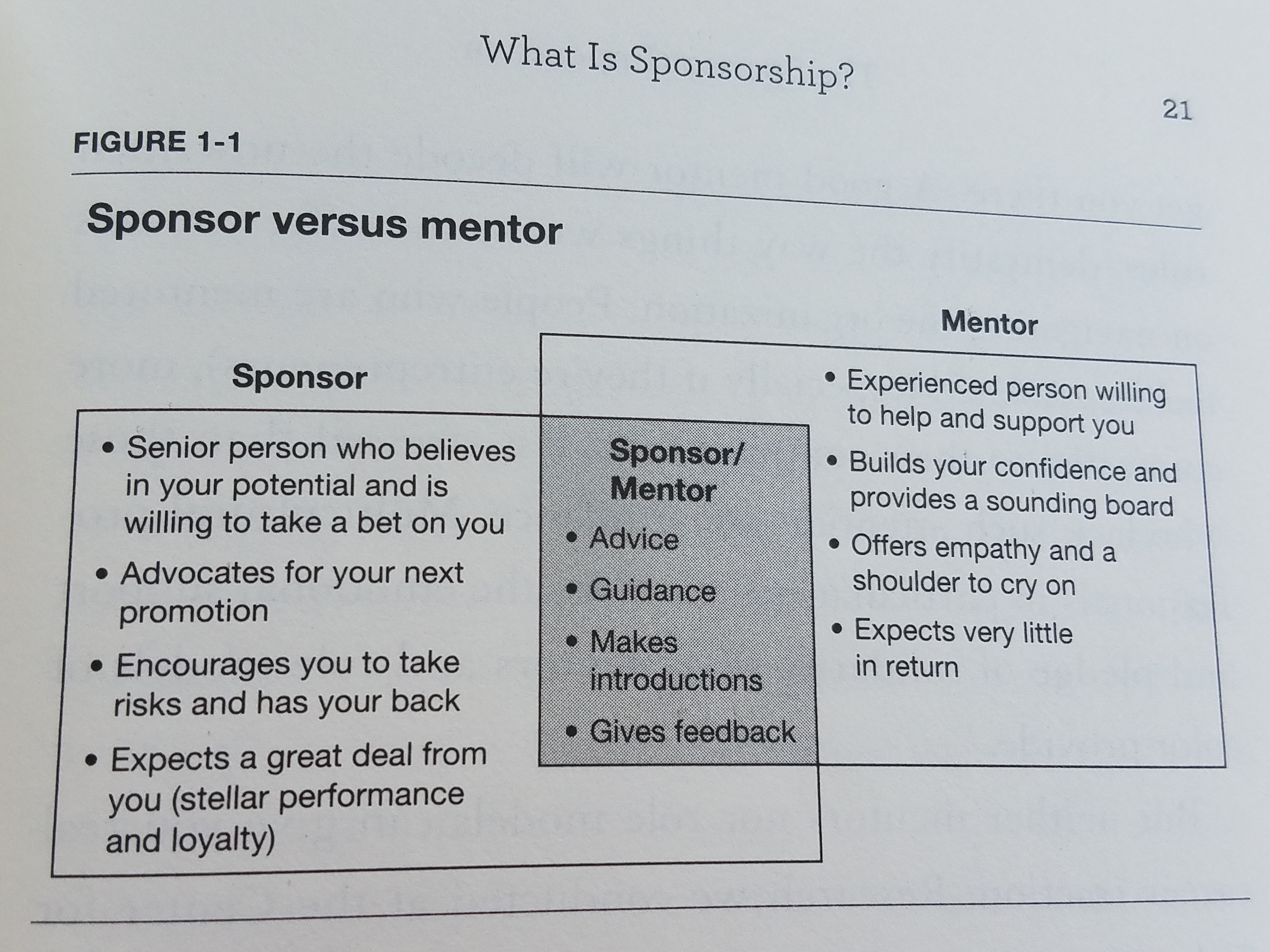I admit I picked this book up based on the cover picture alone. As a business owner, I do sometimes feel like a lonely boat on a big fickle ocean. I like the idea of ripping along the surface like an America’s Cup boat, propelled by a mysterious whale. And that’s what sponsors are, actually. They’re the high-rolling, powerful executives that command attention and drive the trajectories of companies. Their favors are BIG favors. They launch people’s careers, catapult the obscure into the limelight, etc. etc. Oprah is a sponsor.
In my world as an independent recruiter, a sponsor is someone that walks me into new clients and makes sure I get an audience with decision-makers or truly awesome talent. It is different from a mentor, which is essential too, in navigating the day-to-day, making decisions about how to steer my career and company… but they don’t have the connections and authority that sponsors do.
Sounds great, right? So what do you do to attract sponsors and how do you know when you have one?
The second part of that question is easy. If you have a sponsor, you’ll be ripping along like an America’s Cup boat. You’ll be invited to meetings you have no business being in, given stretch assignments, asked to present your ideas, and aggressively promoted. You’ll be the youngest person in the room, routinely asked to do stuff beyond your “pay grade.” It will be challenging, intense and scary. Your first thought — as you sail right into the storm — will be “I can’t do this,” followed immediately by “I don’t have a choice.” You will do it and you will succeed, simply because your sponsor has bet the farm on you and you won’t let her down.
Back to the first part of the question: How do you attract sponsors? As you can see by now, slouches don’t attract sponsors. Sponsors look for people that can advance the ball. You have to bring your A-game, understand their vision and flawlessly execute it, be trustworthy and loyal even/especially in the face of dissent. In other words, you’re a protege.
The idea of being a protege — of patterning your career on making someone else look good — may be counter-intuitive to those looking to advance quickly or achieve greatness. Isn’t that serving rather than leading? To this, I offer Ryan Holiday’s The Canvas Strategy: “He who clears the path ultimately controls its direction.” Meaning: Don’t worry about getting credit or if the task feels beneath you. Recognize what needs to be done get busy clearing the path.
I heard this is the best way to attract whales to your boat.
THE PEOPLE BEHIND THESE IDEAS:
Sylvia Ann Hewlett If you look up the definition of bad ass, Hewlett will be there. A scrappy Welsh girl from the wrong side of the tracks, she got herself a scholarship to Cambridge University, and is not only one of the most brilliant economic minds, but the guru of advancement and overcoming barriers, with books like Executive Presence, Off-Ramps and On-Ramps and about a dozen others. Somehow, she is also the mother of five.
Ryan Holiday is another overachiever, writer and media strategist, as well as the former Director of Marketing at American Apparel. At 29, he’s already the author of five books, including The Obstacle is the Way, which has become the fight song for legions of NFL coaches and players. Download the audio book for some tough love along the lines of “Our ancestors were worried about being eaten or shot, surely you can muster up the courage to deliver a TED Talk.”


